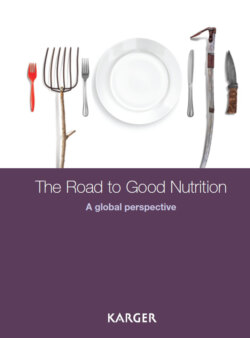Читать книгу The Road to Good Nutrition - Группа авторов - Страница 105
На сайте Литреса книга снята с продажи.
Prevention of stunting should be a human right
ОглавлениеAlthough child undernutriton has long been used as an indicator or proxy for poverty, the world has never united behind making prevention of undernutrition a goal in itself. As stunting is now recognized as so detrimental to development, depriving individuals of the possibility of having equal chances for the rest of their life, the prevention of undernutrition, or stunting, should be recognized as a human right. In view of the fact that it has such widespread consequences, impacting on so many aspects of life, it should not be regarded as merely a ‘nutrition problem’ that nutritionists should solve.
While nutrition has been mentioned as a component of the “right to food”, “right to health” and “Convention on the Rights of the Child”, the prevention of chronic undernutrition has not yet been recognized as a right. In fact, nutrition is mentioned sparsely in the various ‘human rights’ documents, which is apparently due to the fact that nutrition is not regarded as a right in itself but as an element of health or an outcome of lack of access to food.
The Universal Declaration of Human Rights, article 25, mentions both health and access to food as rights:
“Everyone has the right to a standard of living adequate for the health and well-being of himself and of his family, including food, clothing, housing and medical care and necessary social services, and the right to security in the event of unemployment, sickness, disability, widowhood, old age or other lack of livelihood in circumstances beyond his control.”
The International Covenant on Economic, Social and Cultural Rights, meanwhile, provides the most comprehensive article on the right to health in international human rights law. Nutrition is mentioned as one of the determinants of health:
Article 12 of the Covenant recognizes the right of everyone to “the enjoyment of the highest attainable standard of physical and mental health.” “Health” is understood not just as a right to be healthy, but as a right to control one’s own health and body (including reproduction), and be free from interference such as torture or medical experimentation. States must protect this right by ensuring that everyone within their jurisdiction has access to the underlying determinants of health, such as clean water, sanitation, food, nutrition and housing, and through a comprehensive system of healthcare, which is available to everyone without discrimination, and economically accessible to all.
The UN Committee on Economic, Social, and Cultural Rights defines the “right to food” as follows:
“The right to adequate food is realized when every man, woman and child, alone or in community with others, has physical and economic access at all times to adequate food or means for its procurement. The right to adequate food shall therefore not be interpreted in a narrow or restrictive sense, which equates it with a minimum package of calories, proteins and other specific nutrients. The right to adequate food will have to be realized progressively. However, States have a core obligation to take the necessary action to mitigate and alleviate hunger as provided for in paragraph 2 of article 11, even in times of natural or other disasters.”
However, as argued above, the prevention of chronic undernutrition, or stunting, should be a human right because of its widespread and irreversible lifelong consequences.
Bill Gates pledged $800 million to support the work of the Gates Foundation on nutrition and agriculture at the Nutrition for Growth conference
Source: The Children’s Investment Fund Foundation
